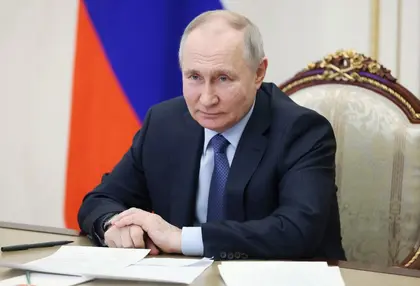The International Criminal Court (ICC) has issued an arrest warrant for war crimes involving the kidnapping and deportation of Ukrainian children. According to Kyiv, about 16,000 Ukrainian children have been forcibly taken to the Russian Federation. This is only the third time that the court, based in the Hague, has issued a warrant for a current head of state. So, what does this mean in practice?
JOIN US ON TELEGRAM
Follow our coverage of the war on the @Kyivpost_official.
President Vladimir Putin is charged with “the war crime of unlawful deportation of population (children) and that of unlawful transfer of population (children) from occupied areas of Ukraine to the Russian Federation.” Russia’s commissioner for children’s rights, Maria Alekseyevna Lvova-Belova, has also been formally charged with the same offences.
Likelihood of Arrest
It is highly unlikely that Putin will actually be arrested by the Russian authorities and the ICC does not conduct trials in absentia, that is, without the alleged perpetrator being present in court. The court relies on member states to arrest the charged individual and has no independent method of enforcing its mandate.
Penalties if Convicted
If convicted, a person found guilty of these crimes could face up to 30 years in prison. The ICC does not recognize immunity for heads of state.
Travel Limitations and Other Practical Effects
The issue of the warrant has, in theory, impacted on Putin’s ability to travel outside of Russia. The 123 nations, that are parties to the ICC Rome Statute, that have agreed to abide by the arrest warrants, include the U.K. and all of the European Union states.

Putin Hints Precondition for Peace Talks: Neutered Ukraine
If nothing else, issuing the warrant against Putin sends a signal to other Russian officials that they should worry about their own future travel and lifestyle options outside the borders of the Russian Federation. It could also limit the future participation of these senior officials in international conferences and meetings.
Perhaps the biggest practical effect is the boost given to the morale and increased international standing of the Ukrainian government and people.
Statute of Limitations for ICC Arrest Warrants
ICC arrest warrants never expire and are only rescinded upon the death of the accused, for example, that issued against Libyan president Muammar Gaddafi.
ICC History
Omar Hassan Al-Bashir, the former president of Sudan, has been charged by the court but never arrested.
In 2001, Slobodan Milošević, the Serbian dictator, was transferred to the Hague after being indicted by the ICC in 1999 for war crimes in former Yugoslavia. The Serbian government surrendered him to The Hague after his fall from power.
Russia’s Stance on the Arrest Warrant
According to Maria Zakharova, a spokesperson for the country’s Foreign Ministry, Russia is not a signatory party to “the Rome Statute of the International Criminal Court and bears no obligations under it.”
The Kremlin had been a signatory prior to its withdrawal in 2016.
You can also highlight the text and press Ctrl + Enter










